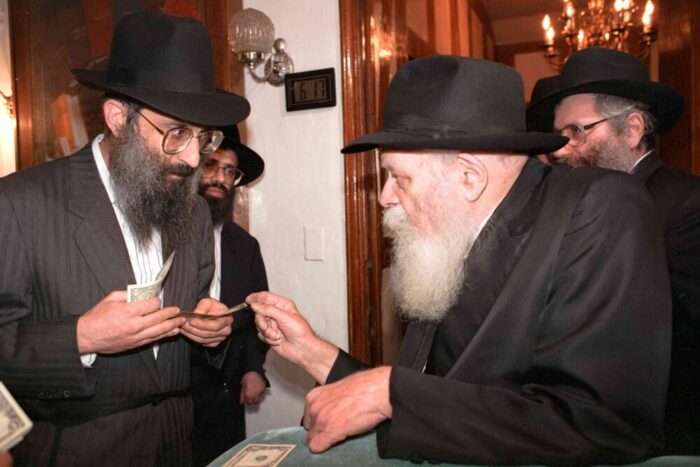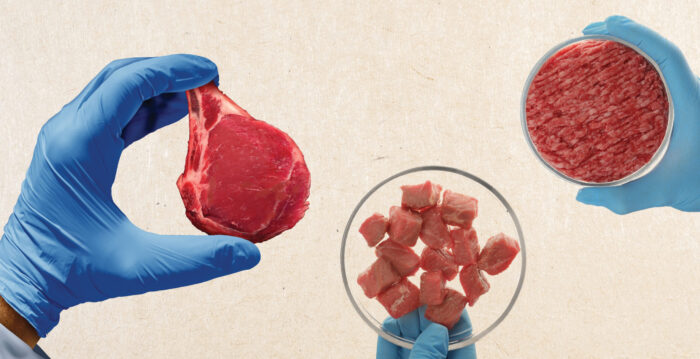There is a growing trend in catered events that has the potential for kashrus concerns. It used to be that when one attended an event, whether a Bar/Bas Mitzvah, Sheva Brachos, Bris, engagement party, etc., one could be sure that all the food and drinks being served were under strict kosher supervision. Typically, the kashrus agency that certified the caterer took full responsibility for the event. They sent mashgichim to the venue and they controlled everything related to the preparation and serving of the food. One could therefore eat and enjoy with confidence, knowing that everything was under the supervision of a kashrus agency.
This is no longer always the case. Party planners and event coordinators have learned that they can save their clients (and themselves) a lot of money by simply buying the food from vendors and then running the service of the event on their own. Often, the vendors are homebased businesses that specialize in fancy cookies and desserts, and do not have any outside kosher supervision. They hire their own waitstaff and manage the event from start to finish. They are a general contractor who hires subcontractors for the various aspects of the event. The caterer or restaurant that made the food is partially, and sometimes even completely, uninvolved in the actual event.
Subcontracting from multiple food vendors exponentially increases the likelihood of kashrus mishaps and consumers must be vigilant and educated so they do not accidentally eat at an event where the kashrus has been compromised.
The following is a true story that happened recently.
A Bar Mitzvah was planned. The venue was a Chassidishe Shul, and the event planner was a very frum woman. She ordered the food from a few different caterers and restaurants from around town. Soup from one place, salads from another, pasta and pizzas from a third place, and so on. One of the items she ordered was grilled vegetables, which were ordered from yet another place.
It turned out that while the event was dairy (pasta and pizzas), the grilled vegetables were ordered from a meat establishment. An alert guest who knew the local kosher food scene well noticed this and alerted the coordinator. After looking into it, they discovered that the grilled vegetables were made on a grill used for meat and not cleaned between grilling meat and vegetables. The grilled vegetables were removed, and a serious kashrus problem was avoided.
While this was not intentional, this type of mistake is hard to avoid.
Let us go through some other things that can go wrong:
1. The Food: Where was the food ordered from? Does everything come from kitchens that are certified kosher by reputable agencies? What about the desserts? Baked goods? Is everything from a bakery that is Pas Yisroel? Is everything pareve (when it needs to be)? If they are ordering from multiple sources, is everything either milchig or fleishig, or was there a mix-up as in our story?
2. Keilim: Where are the dishes from? What about the cutlery? Chaffing dishes? Mixing spoons? Knives? Was anything rented from a rental company? If yes, was it kashered? How? By whom?
3. Kitchen: How is the food warmed up? Is the onsite kitchen being used for staging? Is the kitchen completely kosher? Is it milchig? Fleishig? Who is responsible for maintaining the kashrus?
4. The Bar: Were all the drinks checked and kosher? Soft drinks, juices, wines, beer, liquor, etc.? Is the wine mevushal?
5. Outside Food: Are guests bringing any food or drinks to the event? If yes, who is checking that everything meets the kosher standards of the event?
6. Party Favors: Is there a candy table? Are there party favors? If so, is everything kosher?
7. Additional Vendors: Are there other vendors there? Who is doing the sushi station? Who is doing the pizza station? Dessert station?
8. Waiters and Cooks: Who is watching the staff? Did they While this was not intentional, this type of mistake is hard to avoid.bring their own knives (which is very common)? Did they run out of something and run out to the store to buy a replacement?
9. Fish and Meat: Are these being handled separately and is proper care being taken to ensure that they do not mix?
10. Produce: Are fresh fruits and vegetables being served? If yes, were they cleaned and checked for bugs?
11. Hotel Events: Are all parts of the event up to a high kosher standard? If there is a tearoom, or grab and go meals, are they managed by the caterer or separate event planner?
These are some of the many areas where kashrus can be compromised at an event, even when the food is being ordered from kosher establishments but there is no supervision at the actual event.
Catered events tend to be high pressure situations and the need to get food out in a timely manner and for it to be presentable and plentiful can lead to mistakes and things being overlooked.
What does this all mean for the average guest?
It means that when attending any event or affair one should not just blindly assume that everything is fine. One should ideally ask the host or the party planner who is responsible for the event’s kashrus.
Is it a full-service event where the caterer is running the service or is the event coordinator doing everything from separate vendors? Ask to speak with the mashgiach overseeing the event and ask them some of the questions mentioned above.
The days when one could assume that an event was under full kosher supervision are behind us. Nowadays this cannot be taken for granted. If one determines that there are no mashgichim on site and that the caterer is not providing service at the event, the consumer should be careful about what they choose to consume.
Even when the Baal Simcha is a very ehrliche Yid, and even when the party planner is too, one should still be a conscientious consumer. Hosts and party planners are well-intentioned and trying their best, but they are not kashrus professionals. Their minds are also on many other things and the nuances of kashrus might not be at the forefront. A catered event always needs to be under full, reliable kashrus supervision with trained and experienced mashgichim on site.
To all Baalei Simcha who are planning their next simcha, it is particularly important that kashrus is a high priority when planning an event. None of this means that one cannot or should not use a party planner to handle the decor, entertainment, etc. Rather, the best way to protect the kashrus of an event is by hiring a full-service caterer that handles all food procurement, production, and service. This way, everything is supervised by a central kashrus authority and the onsite mashgichim are ensuring the standard of kashrus is maintained. In this zechus, you will be zoiche to an abundance of brochos and additional simchos!


 EN
EN  ZH
ZH  KR
KR  BR
BR  ES
ES  IN
IN  IL
IL  JP
JP 


